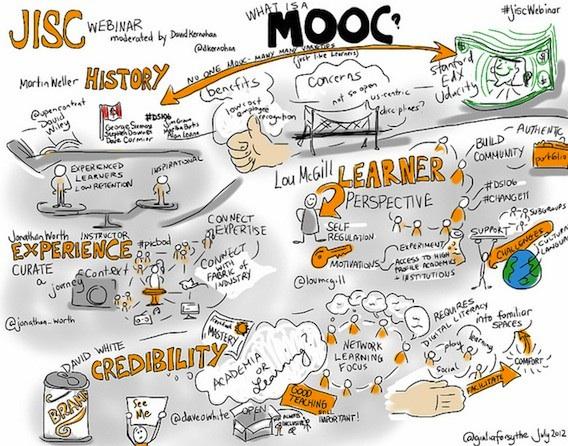How MOOCs Are Revolutionizing Lifelong Learning: Unlocking Affordable Education for All
In an increasingly digital and fast-paced world, the demand for accessible and affordable education has never been greater. Enter MOOCs—Massive Open Online Courses—that are transforming lifelong learning and democratizing access to high-quality education worldwide. Whether you’re advancing your career, planning a career change, or simply passionate about acquiring new knowledge, MOOCs provide flexible, innovative pathways for learners of all ages and backgrounds.
What Are MOOCs? Understanding the Basics
MOOCs, or Massive Open Online Courses, emerged in the early 2010s as a way for prestigious universities and leading organizations to make educational resources available to anyone with an internet connection. Platforms like Coursera, edX, FutureLearn, and Udacity have since become household names in online learning.
- Massive: tens of thousands of learners can enroll in a single course.
- Open: No strict prerequisites—anyone can join, often for free or a small fee.
- Online: complete flexibility to learn from anywhere, at any time.
- Course: Structured learning material, including videos, readings, and assignments.
From data science and coding to art history and business strategy, moocs cover nearly every imaginable field, making them a powerful catalyst in the revolution of lifelong learning.
How MOOCs Are Revolutionizing Lifelong Learning
the rise of moocs is a game-changer for traditional education and professional development.Hear’s how MOOCs are revolutionizing lifelong learning and unlocking affordable education for all:
1.breaking Down Geographical Barriers
- Anyone, anywhere in the world, can access top-tier courses from renowned universities like Harvard, MIT, and Stanford.
- MOOCs empower learners in underserved or remote areas were quality education is hard to find.
2. Providing Affordable and Frequently enough Free Education
- Core course content is frequently free, with the option to pay for official certificates or advanced features.
- Eliminates costly tuition fees, commuting, and textbook expenses.
- Many platforms offer financial aid or scholarships for paid certifications.
3. Enabling Flexible, Self-Paced Learning
- Busy professionals and parents can learn at their own pace, fitting study schedules around work and family commitments.
- Short courses, micro-credentials, and modular design let learners tailor education to their unique needs.
4. Keeping Skills Current for the Future of Work
- Industries are changing rapidly—MOOCs help individuals stay up-to-date with cutting-edge skills in technology, management, and more.
- Continuous upskilling and reskilling are essential in today’s evolving job market.
5. Fostering a Global Community of Learners
- MOOCs encourage diverse, international collaboration through peer assessments, discussion forums, and study groups.
- Exposure to global perspectives enriches learning and broadens horizons.
Benefits of MOOCs: Unlocking Affordable Education for All
- Accessibility: Open to anyone with an internet connection, irrespective of background or prior education.
- Affordability: low or no tuition fees; financial aid makes certification accessible.
- Flexibility: Tailored pace and structure to fit individual schedules.
- Scale and Variety: Thousands of courses across disciplines and skill levels.
- certification: Earn recognized credentials to boost employability and career prospects.
- Interactive Learning: Video lectures, real-world projects, quizzes, and forums foster engagement and retention.
Practical Tips for Maximizing Your MOOC Experience
- Set Clear Goals: Define what you want to achieve—skill development, career pivot, or personal enrichment.
- Choose Accredited Platforms: Opt for respected platforms like Coursera, edX, or FutureLearn for quality and recognized certification.
- Stay Consistent: Create a study schedule and stick to it to avoid procrastination.
- Engage with the Community: Actively participate in forums, discussion boards, and group projects.
- apply What You Learn: Use new skills in real-world scenarios, side projects, or at work for deeper understanding.
- Share Achievements: Add certifications to your LinkedIn profile and resume to showcase newly acquired competencies.
Real Success Stories: The Impact of MOOCs
Case Study 1: Career Transition to Data Science
Jane, a teacher from the UK, leveraged MOOCs on Coursera and edX to transition into data science.with no prior experience in programming, she completed courses in Python, statistics, and machine learning, earning industry-recognized certificates. Within a year, Jane landed an entry-level data analyst role, proving the power of self-directed learning and affordable education.
Case Study 2: Upskilling for Career Advancement
Ravi, an engineer from India, wanted to move up the career ladder. Through MOOCs, he learned about project management, agile methodologies, and leadership. the flexibility allowed him to study alongside his job, and after earning several certificates, Ravi received a promotion to team lead.
Overcoming the Challenges of MOOCs
While MOOCs offer numerous advantages, it’s critically important to acknowledge and address potential hurdles:
- Completion Rates: self-paced courses can lead to procrastination. Setting reminders and joining peer groups can help maintain motivation.
- Recognition: While more employers accept MOOC certificates, always verify the credibility of both the platform and the credential before committing.
- Internet Access: MOOCs require a stable internet connection. Some platforms allow course downloads for offline study.
The Future of Lifelong Learning with MOOCs
As technology advances and the global workforce becomes more adaptable, the role of MOOCs in lifelong learning will only grow. universities, employers, and governments are increasingly recognizing the transformative potential of online education in closing skill gaps and promoting continuous personal and professional growth.
- hybrid degrees that blend moocs with campus experiences are on the rise.
- Corporate partnerships with MOOC platforms facilitate large-scale upskilling initiatives.
- Emerging technologies like artificial intelligence and virtual reality are enhancing online learning experiences.
Conclusion: Embrace the MOOC Revolution for Lifelong Learning
MOOCs are revolutionizing lifelong learning, making affordable education and skill-building accessible to all. Whether you’re seeking career advancement, personal enrichment, or a complete professional reinvention, the world’s best educators and resources are only a click away. By embracing the flexibility, affordability, and global reach of MOOCs, you can unlock a lifetime of knowledge and opportunity—no matter where your journey begins. Start exploring today, and join the millions who are shaping their futures through open online learning.

